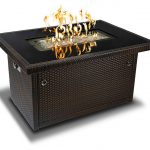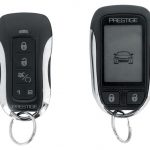(CNN) — They won’t get you buzzed, but some experts say alcohol-free beers and mocktails shouldn’t be sold to minors, and they’re calling for laws that curb underage sales to kids and teens.
Related Articles
KCAT hosts Oktoberfest celebration in Los Gatos on Sept. 29
Brewery Day Trip: Beer and baseball in West Oakland
Chef, brewery collaborate on new beer that pays homage to Santa Clara Valley flavors
4 great new Bay Area beer gardens to explore in 2024
St. Francis High School opens new Welcome Center with a blessing
The market for nonalcoholic drinks has been growing as more people — notably younger adults — look to cut their alcohol use. In order to be considered nonalcoholic, these drinks have to contain less than 0.5% alcohol by volume.
The sober-curious movement has given rise to ready-to-go drinks in cans and bottles that often look just like their boozy counterparts. There’s Budweiser Zero, for example, and a nonalcoholic version of Corona beer in the same signature longneck bottle.
“It’s a way to blend in for a lot of folks who are using these in social settings,” said Dr. Molly Bowdring, an instructor in the Stanford Prevention Research Center.
But the products may offer an entry point into drinking culture that some experts are worried could foster unhealthy habits.
Actress Kristen Bell ruffled some feathers last year when she said on a talk show that she lets her daughters — now ages 9 and 11 — drink their dad’s nonalcoholic beer at home.
“They’re unlikely to lead to intoxication, but they contain many of the same cues as alcohol – flavor, look, smell,” said Bowdring, who recently published a commentary on the issue in the journal JAMA Pediatrics.
She says there’s emerging evidence that nonalcoholic beverages may prime kids to switch to the real thing.
The research that’s raising eyebrows comes from Japan, Taiwan and Australia.
Surveys of elementary, middle and high school students in Japan, where the legal drinking age is 20, found that 20% to 30% said they were drinking nonalcoholic beverages. Additional studies in Japan found that elementary school students who said they drank nonalcoholic drinks were more interested in drinking alcohol than those who said they didn’t have these kinds of beverages.
Nonalcoholic beverage use in junior high and high school was linked to the likelihood that a person had had alcohol in the previous 30 days.
In Taiwan, where the legal drinking age is 18, high schoolers who said they drank nonalcoholic beverages were more likely than those who didn’t to express an intention to drink alcohol.
In Australia, where the legal drinking age is 18, researchers conducted focus groups and surveyed teens ages 15 to 17 about the use of what they called zero-alcohol beverages. They found that more than a third had tried zero-alcohol drinks, and more than 1 in 5 were drinking them at least monthly. In the survey, teens who said they had tried zero-alcohol drinks were 2.5 times more likely to have also drunk alcohol compared with those who’d never had them.
Dr. Leon Booth, a research policy fellow at the George Institute for Global Health in New South Wales, Australia, said teens appear to be drinking these for a mix of reasons. Some were just curious about new products and tried them but didn’t drink them frequently. Others, though, said they had used zero-alcohol drinks to fit in with older friends who were drinking.
“They are effectively role-playing drinking when they choose a zero-alcohol version of an alcoholic product, instead of a regular soft drink or something else obviously not alcoholic,” Booth wrote in an email.
“In the focus group discussions, a few teens mentioned they had gotten used to the taste of beer by drinking zero alcohol versions, which suggests that zero alcohol beverages can acclimatise young people to the taste of alcoholic beer,” he added.
The Distilled Spirits Council, a group that represents manufacturers of alcoholic drinks, said its members agree that nonalcoholic beverages that are made to look like the real thing shouldn’t be consumed by kids and teens.
“Non-alcohol beverages using alcohol branding are made for adult consumption and many alcohol producers have committed to voluntarily print age restrictions on alcohol-free extensions of alcohol brands,” Lisa Hawkins, a spokesperson for the council, wrote in an email. The group says it has no position on state-mandated age restrictions.
Bowdring says there’s little research on how often kids in the US may be drinking these, although she’s working on a survey now. She also contacted officiais in all 50 states and the District of Columbia to see whether they regulate the sale of nonalcoholic beverages. It turns out most don’t, including California.
Twelve states limit the sale of nonalcoholic beverages to minors to some degree, Bowdring said, but her research suggests that most of these regulations were sort of accidental more than intentional.
“My read of the situation, having talked to a lot of folks, is that there weren’t specific laws or policies written in for nonalcoholic beverages, but rather their definition of alcohol simply encompassed nonalcoholic beverages,” she said.
The-CNN-Wire
& © 2024 Cable News Network, Inc., a Warner Bros. Discovery Company. All rights reserved.


